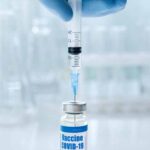An earlier study by Dr. Machado and other researchers indicated COVID-19 vaccines were well tolerated by most patients with IRMD and that disease flares were uncommon, occurring in 4.4% of patients with 1.5% who required changes to medication. Other smaller studies have looked at flares reported by patients and found a higher flare rate following vaccination, but often did not distinguish IRMD flares from short-term vaccine reactogenicity.
The New Study
In this larger, international study, Dr. Machado and fellow researchers gathered data on demographics, primary IRMD diagnosis and key medications, as well as vaccine type, date given and number of doses. Disease activity was assessed at first dose under the four categories of remission, low, moderate or high disease activity. It was assessed again after vaccination for development of an IRMD flare and for any medication changes that were added or increased in response to a flare.
Researchers reviewed physician-reported flares using the EULAR coronavirus vaccine (COVAX) registry, which includes data from several, mostly European, countries. Data were recorded from February 2021 to October 2022 by rheumatologists or their clinical team members into a secure web application or transferred from a national registry.
The patient population included only people who had received one or two COVID-19 vaccines and had a pre-existing IRMD diagnosis. Patients were excluded from the study if they received a combination of vaccines from different brands.
Medications documented at the time a COVID-19 vaccine was given included disease-modifying anti-rheumatic drugs (DMARDs), such as methotrexate and leflunomide; biologic DMARDs, such as rituximab and belimumab; tumor necrosis factor (TNF) inhibitors; Janus kinase (JAK) inhibitors; immunosuppressants; and other drugs, including intravenous immunoglobulin and antifibrotics.
Flares were defined by signs and symptoms local physicians interpreted as suggesting a post-vaccination IRMD flare. Information was collected about the type and severity of flares, changes in anti-rheumatic medication and time between vaccination and the flare.
The average age of patients with IRMD was 58, and more than two-thirds (68%) were women.
Most patients had inflammatory joint disease (71%), followed by connective tissue disease (18%), vasculitis (9.9%) and other IRMDs (1.7%). Nearly two-thirds of IRMD primary diagnoses were rheumatoid arthritis (36%), axial spondyloarthritis (16%) and psoriatic arthritis (12%).
Methotrexate was the most common individual medication used, followed by glucocorticoids and TNF inhibitors. DMARDs were the most frequently used medication groups, followed by immunosuppressants.
Most patients—just over 82%—received two doses of a vaccine, and 18% of patients received one dose. The Pfizer/BioNtech COVID-19 vaccine was the most common administered among patients in the study, with 74.1% receiving two doses and 42.8% one dose. AstraZeneca and Moderna vaccines were the second and third most common in the study, respectively.



